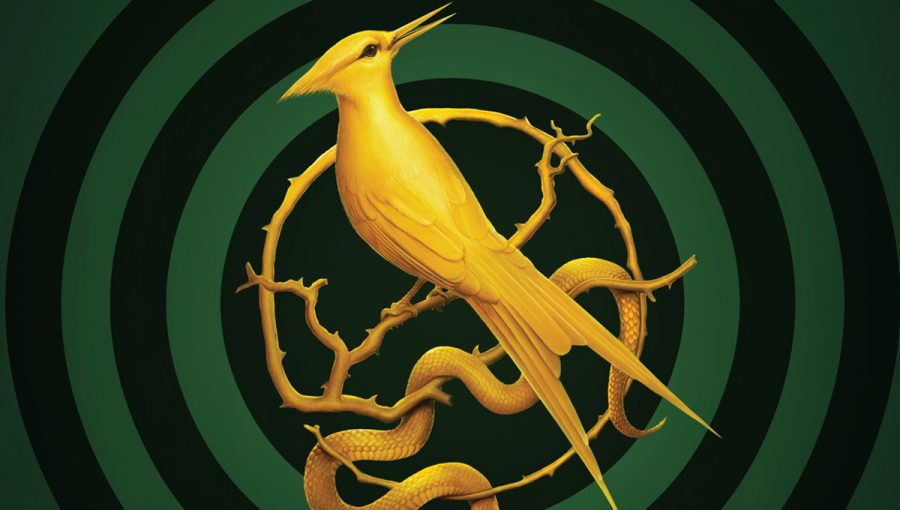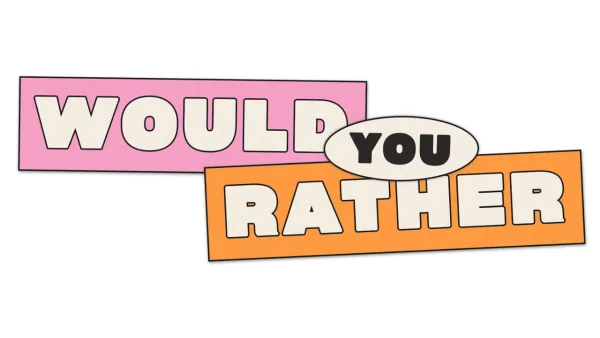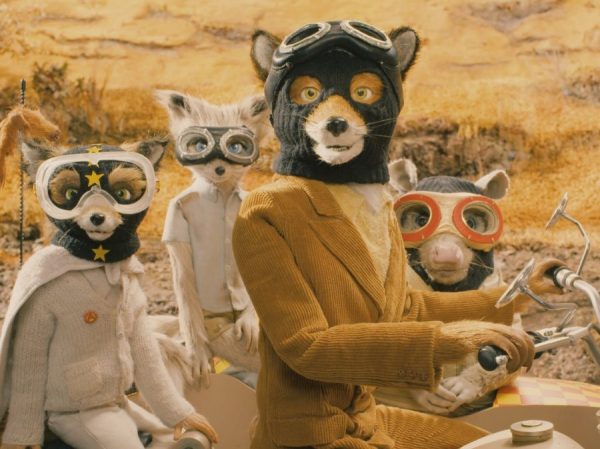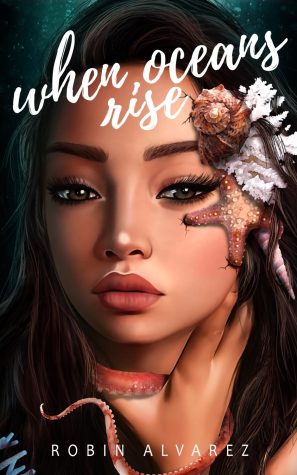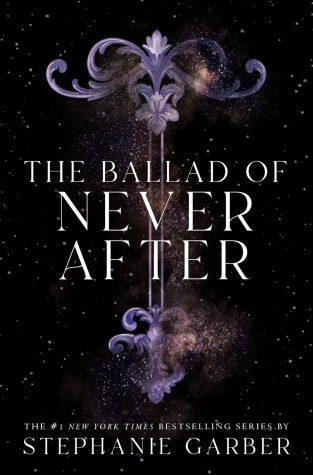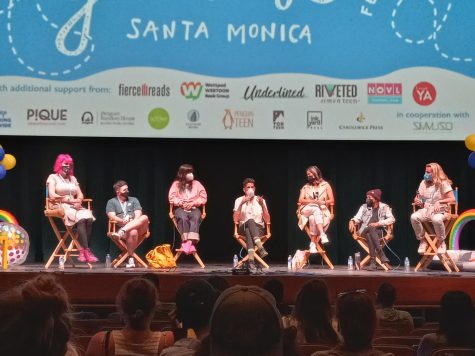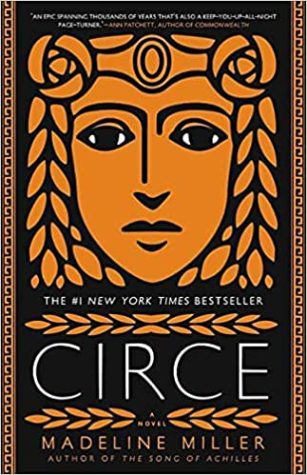Book Review: The Ballad of Songbirds and Snakes
https://www.google.com/url?sa=i&url=https%3A%2F%2Fwww.denofgeek.com%2Fmovies%2Fhunger-games-prequel-ballad-of-songbirds-and-snakes-release-date%2F&psig=AOvVaw2TuhStBhAX2FB3qMovYAH9&ust=1615099649832000&source=images&cd=vfe&ved=0CA0QjhxqFwoTCOiL35mJm-8CFQAAAAAdAAAAABAF
March 10, 2021
When The Hunger Games author Suzanne Collins announced in June of 2019 that a prequel to the series was being made, a great deal of excitement rose within the fandom, who were excited to learn more about the fictional world of Panem. That excitement died down quite a bit, however, when Collins also announced that the book would revolve around the initial series’s main antagonist, President Coriolanus Snow, whom the consensus agreed shouldn’t be humanized nor redeemed, and yet the upcoming book was most likely to do both. Despite the disapproval of the fanbase, the prequel, known now as The Ballad of Songbirds and Snakes, was published on May 19, 2020, with mixed reviews. The story takes place 64 years before the first book, during the 10th Hunger Games, and does indeed center around the main series’s antagonist, though simply known as Coriolanus (or Coryo by people close to him) throughout the book. His main goal is to get his tribute through the Games, though because she’s from District 12 (one of the least desirable districts), immediately is Coriolanus put at a disadvantage. The book itself, though not perfect, actually turned out to be quite the read, and for the most part, makes an amazing addition to the Hunger Games series.
Warning: From here on out, there will be spoilers for The Ballad of Songbirds and Snakes and possibly even from the original series. If you haven’t read either of these and do not wish to be spoiled, click away from this article. You have been warned.
Storyline – 7/10
As stated previously, the story takes place during the 10th Hunger Games, 64 years before the events of the first book. The story revolves around Coriolanus Snow, who is to later become president of Panem by the first Hunger Games novel. Coriolanus’s main goal throughout the book is to mentor his tribute, a girl from District Twelve named Lucy Gray Baird. He’s to help her get through the Games, which he succeeds in doing, but not without a little bit of cheating, which he does face punishment for by being sent to the Peacekeepers force. The storyline, at least for me while reading it, started to get complex from there as I watched Coriolanus go from this well-mannered boy with a sense of charm to this boy that seemed to only care for himself.
By the first half of the novel, he had found acquaintance with a boy named Sejanus Plinth whose family had once been in District Two but were able to buy their way into the glamorous Capitol. He also found a lover in his tribute, Lucy Gray. There was also, of course, his family, which consisted solely of his cousin Tigris and his grandmother (referred throughout the book as the Grandma’am) as his father was killed in the war before the book, and his mother passed away during childbirth alongside what would’ve been his sister. By the end of the book, he’s become the man he always wanted to become, studying at the university of his dreams, but at the cost of what? In the end, Sejanus is dead, having been executed after his plan to escape the districts was exposed to officials by Coriolanus himself, and Lucy Gray’s fate is left unknown after the two of them had tried to run away themselves. The only reason he joined her in the first place was that he was scared of being caught for the killing of the daughter of the mayor in District Twelve, which he had only done to protect Lucy Gray. Once he found the gun used to kill her and got rid of it, he decided to go back, which Lucy Gray must have sensed, seeing that she disappeared not too long after. It’s not clear what exactly happened to Lucy Gray, and by the end of the novel, Coriolanus wasn’t interested in finding out. At the very end of the novel, he discreetly poisons the dean of his old school, Casca Highbottom, after he admitted to creating the Hunger Games while out drinking with Coriolanus’s father, Crassus Snow, however never intended for the idea to be used.
Personally, Coriolanus’s decisions to backstab Sejanus and ditch Lucy Gray weren’t his best. While they are in line with the evil man we see in the initial series, it’s still unpleasant to watch him do such a thing. As for poisoning the dean, whom he never liked, I was (and still am) confused on why Collins decided to include this in the book at all. Perhaps it was a homage to how in the initial series Coriolanus (known there as President Snow) was said to poison his victims but also took the poison himself to not look suspicious. It’s an odd way to end the book in my opinion, but perhaps others will find it significant.
Characters – 7/10
The characters of the story I found well-written based on what was actually given about them, as I feel like Collins focused solely upon Coriolanus with a few glimpses of Lucy Gray and Sejanus here and there. Other characters, such as his classmates, were also mentioned but not really noticeable, and the only one of his classmates that I paid really any attention to was a girl named Clemensia Dovecote, who mentored the male tribute for District Eleven. She was tortured by some mutant snakes created by the Gamemakers which messed with her brain a bit but was able to recover, however not much else is seen from her after the Games ends.
Coriolanus himself was a confusing character entirely. Though charming, he was a bit greedy and self-centered, choosing to save his reputation even at the expense of a close friend and a former lover. I initially took a liking to his character (or at least sympathized with him to an extent), however, I detested the man he had become by the end of the book. One thing I will give Collins though when it comes to Coriolanus is that she doesn’t try to redeem him in the end. Sure, he was a lot easier to sympathize with at the start, but at the end of the day, he still becomes the power-hungry President Snow one way or another, which I appreciate.
Another somewhat significant character would be Dr. Gaul, the Head Gamemaker (and later, Coriolanus’s mentor). She was the one who put the Hunger Games idea from Dean Highbottom into action and is in charge of putting the Games together each year. I found her a bit brutal in all honesty, but she was alright, I suppose.
From a reader’s view, the one that had the most sense to me was Sejanus, who never wanted to participate in mentoring the Hunger Games or be involved with them at all. Heck, he didn’t even want to be in the Capitol; he always considered District Two as his home, which his peers often bullied him for, however, Coriolanus either showed him some decency or completely ignored him, which he was thankful for as to him it was better than being bullied. Sejanus was a good kid at heart, which is why it was even more unpleasant to watch Coriolanus snitch on him to Dr. Gaul and the other officials as well as see him being executed, considering his last words consisted of him calling out to his mother, whom he was quite close to.
Lucy Gray was probably one of the oddest characters I’ve ever come across in books but in a good way. She kind of reminds me of Luna Lovegood from the Harry Potter series, with both characters possessing a sense of oddity and bluntness as well as how there’s no character quite like them in either series. Lucy Gray also possesses a talent for singing, which she often does alongside her family, the Covey (I was never sure if that was a tribe of some sort, as it’s never really specified in the book). In a sense, she had some sense like Sejanus and it was quite clear that Lucy Gray really did care about Coriolanus, which is why I found it frustrating that Coriolanus left her towards the end of the book, as I had become accustomed to their relationship.
Finally, the character that I personally want to know more about is Coriolanus’s cousin Tigris. We don’t see her too much, except for parts here and there in this book and briefly in the final book of the Hunger Games trilogy. It interests me how close Tigris and Coriolanus were in the book and I kind of understand her worrying over her family throughout the story. I wish we had gotten to see more of her, as she seems like quite the complex character. I’m also curious to see just how that closeness between her and her cousin dwindled and died as Coriolanus started to become more and more power-hungry.
Setting – 8.5/10
If there’s one thing I can always give Collins credit for in her books, it’s the imagery she uses to portray the setting. From the home of the Snow family to the Academy to the arena of the Hunger Games and other locations, each place is quite interesting to the eye of the reader. The only problem is that the locations are nice…when I can actually comprehend where they are, which I’ll admit was difficult from time to time. The ones I could figure out, however, were really nice to think about, and it’s interesting how much effort was put into it.
It’s also interesting just how different the settings of the 10th Hunger Games were compared to the settings of the 74th Hunger Games. While the 74th Hunger Games was more glamourous and the tributes were greatly taken care of (presumably so that no tribute ends up dying before the Games), the tributes of the 10th Games were kept shackled in the monkey house at the zoo. They were minimally taken care of, not to mention that the officials didn’t seem to care about whether or not all 24 tributes made it to the arena, as about half of the initial tributes were dead before the arena. Some tributes even came into the arena with diseases, an example being Lucy Gray’s district partner Jessup, who contracted rabies from something in the monkey house, though what that something was is unknown.
Overall Score – 7.5/10
Compared to the original trilogy, The Ballad of Songbirds and Snakes is probably the weakest of the books relating to the Hunger Games universe. However, that doesn’t mean that the book isn’t good. The book is actually an enjoyable read, even if fans were unhappy by Collins’s choice of who to write about and believed that other characters deserved it more. While I would love to see Collins write a prequel about Coriolanus’s cousin Tigris or even characters from the initial series like Haymitch, District Twelve’s sole mentor, The Ballad of Songbirds and Snakes is still an intriguing addition to the series, even if the main character takes a downward spiral into greed and a lust for power.

